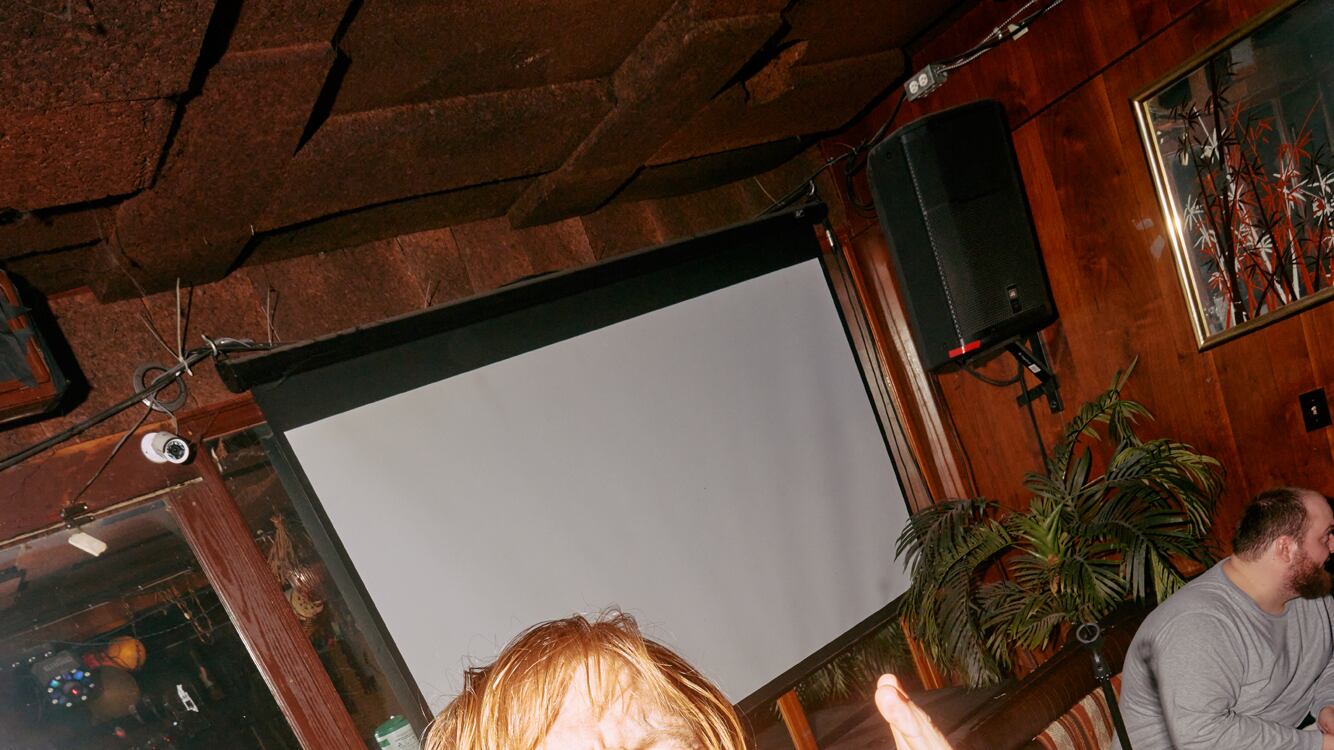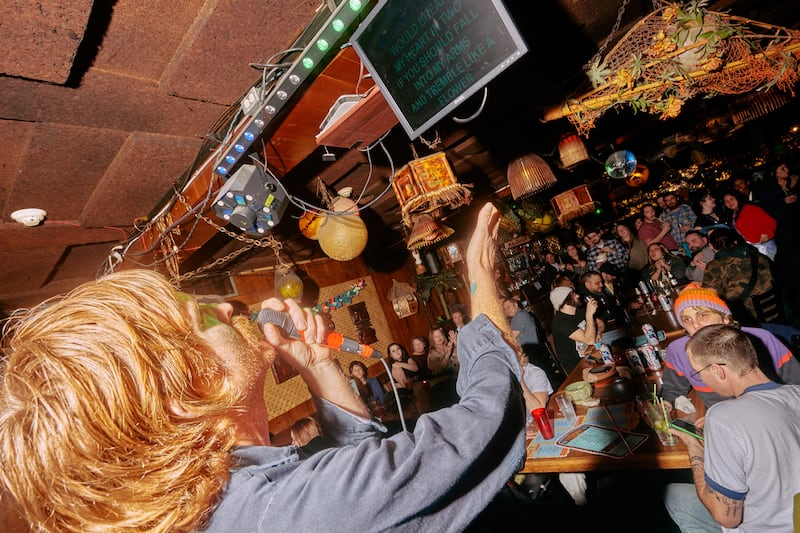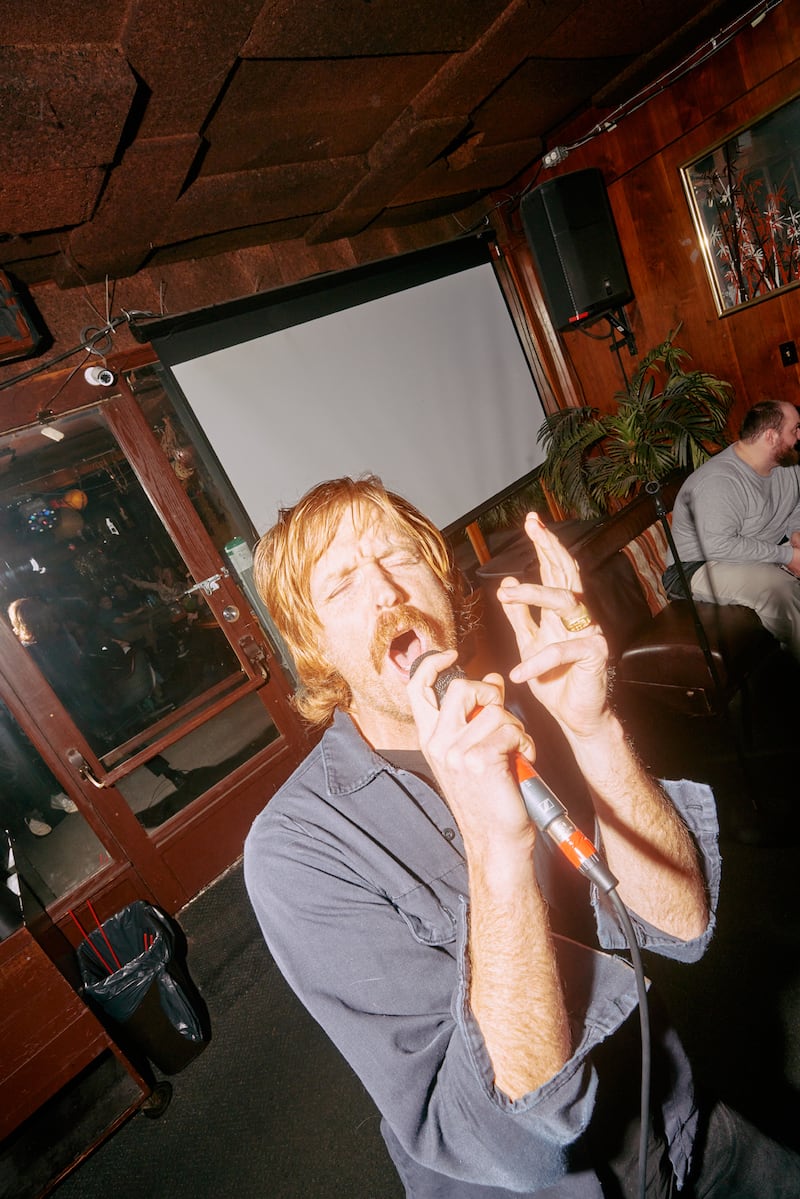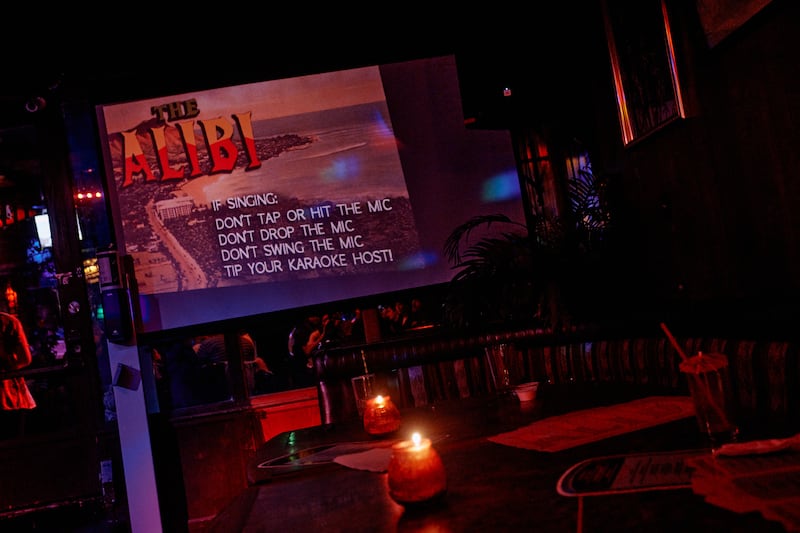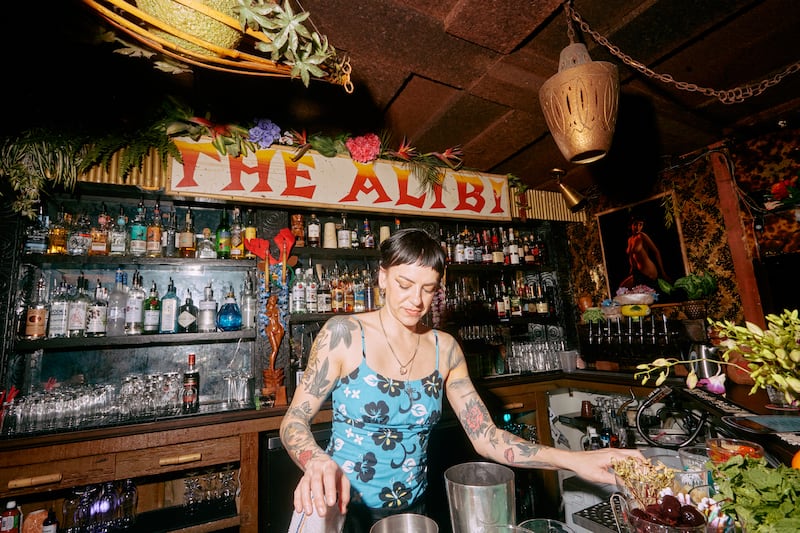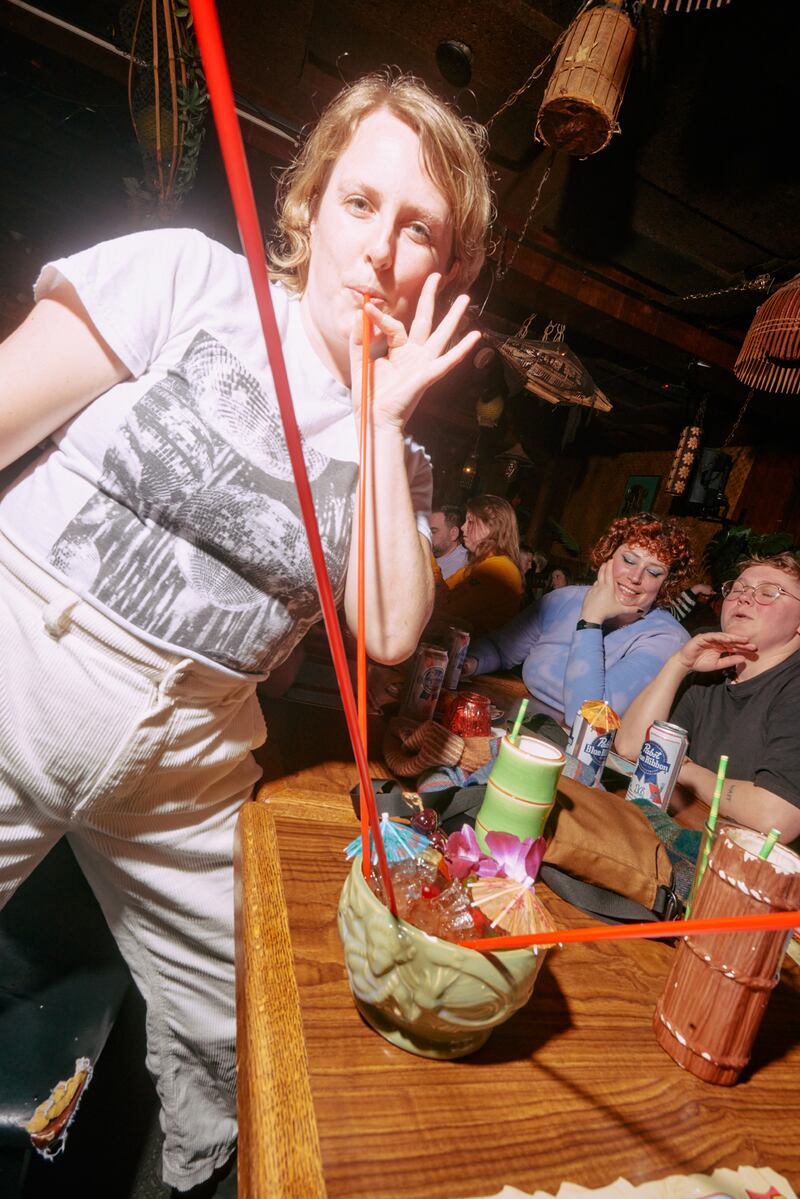In the doomiest days of the pandemic, microphones gathered dust as Portland’s raucous karaoke scene went into hibernation. Yet in the private karaoke rooms at John Brophy’s beloved Baby Ketten Klub, the music never quite died.
“Even during the pandemic, when we were able to halfway open our doors, people would come in to rent the private rooms—just to sing by themselves and just to scream,” Brophy says.
Today, the screaming and singing aren’t so private. There are more than 15 dedicated karaoke bars in Portland, and several dozen others that offer karaoke nights. There were pandemic casualties (rest in peace, Canton Grill), but it’s still feels like an impressive high note for a scene that suffered a total eclipse of the heart (sorry) when COVID-19 made spitting on strangers a verboten practice. (For one silent summer, the only regular karaoke night to be found was in the parking lot of Fryer Tuck’s chicken pub in the Southwest Hills.)
“We are only seeing an increase, month after month, of business,” Brophy says. Karaoke is “something that Portland loves—it’s something the world loves—but Portland has always been a karaoke mecca. There’s people that go to karaoke six nights a week.”
With its phalanx of customized tracks, Baby Ketten Klub is like a real-life version of Will Ferrell and John C. Reilly’s hip Karaoke ‘n’ Roll business in the movie Step Brothers (in 2013, The New York Times proclaimed Brophy “the mastermind of America’s greatest karaoke night”). It’s part of a tradition of bougie karaoke in the Rose City that also includes the ultra-sleek Voicebox, whose two Portland locations have endured, despite the pandemic shuttering of its Boise and Denver outposts.
Grittier Portland karaoke joints survived the pandemic, too. The glow-in-the-dark tiki ambience of The Alibi still seduces many singers—as does the friendly, rowdy atmosphere of Twenty First Ave Kitchen & Bar, which hosts karaoke seven nights a week from 9 pm to 2:30 am under the light of a gleaming disco ball.
Places like Twenty First Ave amplify the awkwardly glorious vibe of karaoke. On any given night, you might endure all five minutes and 55 seconds of “Bohemian Rhapsody” from an overzealous singer or be accosted by a drunken patron who steps away from the mic to play matchmaker between you and your date. Yet amid the chaos, there are always moments of unearthly beauty, like the piercingly tender performance of Dido’s “Thank You” that I heard there on a Sunday night in December.
Maybe it took a pandemic for us to appreciate the community and connection that karaoke inspires. Brophy certainly sees it that way. “You walk into a bar and you’re no one to everyone in the bar,” he says, “but then you get up and bare your soul, and all of the sudden people are congratulating you on your song and introducing themselves.”
It’s often said that karaoke gives people permission to sing badly. Technically, that’s correct; emotionally, it’s bullshit. Hardcore karaokers know that when you’re standing in front of a cheering crowd, whether or not you’re in tune is irrelevant. All that matters is that when you sing, you don’t half-ass it. It’s one of the few things the pandemic didn’t change.
0 of 9
